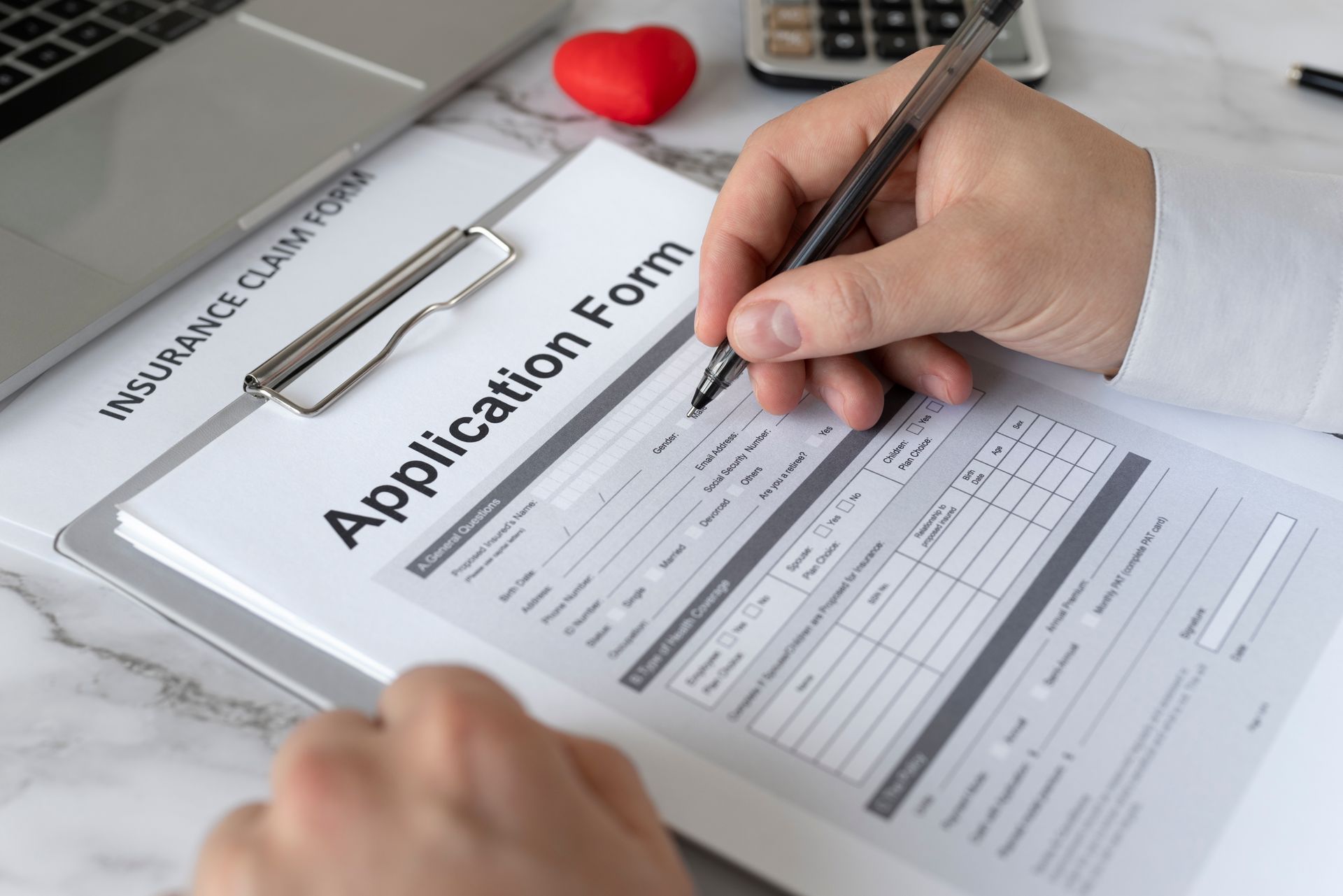Top Ten Tips After Approval as a Permanent Resident of Canada
Congratulations on being approved for
Permanent Residence! Now that you’ve achieved this important Canadian immigration milestone, we are pleased to share with you our best ten tips to make sure everything goes smoothly from here.

Ensure you have actually “Landed” as a Permanent Resident - COPR Canada
It’s not enough to receive notification that your permanent residence application was approved. There are a few extra steps to finalize the process with Canadian immigration after you receive a permanent resident visa before you actually obtain Canadian Permanent Resident status.
The process of receiving confirmation of permanent residence differs depending on whether you are physically outside Canada or inside Canada at the time you are approved.
Landing from outside Canada - the Landing Process and the COPR Document
If you are outside Canada when your application for Permanent Residence is approved, you will receive a Confirmation of Permanent Residence (COPR) paper from Canadian immigration to confirm your new immigration status. Read your Permanent Residence COPR carefully before making travel plans to Canada. If there are any errors on your confirmation of permanent residence, or any information is outdated (especially marital status or dependent children), it is very important to get professional advice on how to handle it, in order to avoid border problems upon arrival to Canada.
You will "become landed" upon arrival at a Canadian airport or land border and confirm your PR status in a quick conversation with an officer. The border officer will conduct an immigration landing interview with you and your accompanying family members to check your COPR and other documents.
If you are flying to Canada, this will occur at the first airport where you arrive. The immigration process can take some time, e.g. waiting in line, so ensure you have at least 3 hours layover before any connecting flights. Your permanent residency status begins on the date that you arrive to Canada and undergo the landing interview at the airport.
Landing from inside Canada on the Permanent Residence Portal - the Electronic Confirmation (E COPR)
If you are inside Canada with valid temporary status when approved for PR, the landing process will be done virtually through an online portal in your PR account.
You will receive emails from Immigration, Refugees and Citizenship Canada (IRCC) asking to confirm your email address as well as your physical presence and address in Canada. (You cannot be landed virtually when outside Canada). If all is in order, you will be sent the instructions with password to access your e-COPR in the Permanent Residence Portal.
Your e-COPR provides electronic confirmation of your new status as a Canadian Permanent Resident. The printed document can be used to apply for government benefits such as a permanent social insurance number.
You will also be asked to upload a photo to your portal account, which will be used to make your first PR card. The card will be sent to you in the mail in a few weeks and is valid for 5 years.
Spend time inside Canada per Canadian immigration requirements
Residency requirements must be met to retain your permanent resident PR status.
You must live in Canada for at least 2 years out of each 5-year period. The 2 years do not need to be consecutive, meaning you could live one day in Canada and the next day somewhere else on a regular basis and you would still meet the residency requirement.
The 5-year period is a rolling calculation, which means that every day starts a new 5-year look back period. You will need to prove you've met the requirement whenever you re-enter Canada or apply to renew your new PR card.
Keep a record of your travels outside of Canada
It is up to you to prove your time spent inside Canada. It is a good idea to keep your boarding cards when flying, and ask to have your passport stamped whenever possible. If you are travelling by car into the United States, stop and get gas on both sides whenever you cross the border. The receipts will help to prove when you entered the US and when you returned to Canada.
Later on, you will likely want to renew your PR card or apply for Canadian Citizenship. In both cases, you will need to confirm all the dates you were inside and outside of Canada. It’s much easier if you keep good records on an ongoing basis.
Know the requirements of the program that you were approved under
If your application for Permanent Residence required you to have settlement funds, you will need to prove the minimum level of funds in your account during your landing appointment. Ensure you provide recent bank statements, and monitor the currency conversion rates to ensure your savings meet the minimum required Canadian dollar equivalency. Also be aware of the most recent settlement funds levels if you applied in one calendar year but are landing in the following year, since they are updated annually.
For some categories, such as a spouse or common-law family sponsorship, you are required to move to Canada immediately upon landing. In other categories, you can enter Canada to “land” but then return overseas and move to Canada at a later date, in time to meet your residency requirement.
If you are a Provincial Nominee, you must live in the province that nominated you and establish a permanent address there. Expect to get questions at the port of entry if your onward ticket is not taking you to that province.
Keep your original Confirmation of Permanent Residence (COPR)
If you received a paper COPR, keep the original in a safe place and also make an electronic copy. If you received the e-COPR, it is a good idea to print and keep a paper copy as well as the digital copy.
Even once you have your Permanent Residence card, the COPR is an important document that you may need at some point to confirm your status in the future.
Don't leave Canada until you have your first PR card
It can take about 2-3 months to receive your first PR card once you are landed as a new Permanent Resident. Permanent residents always need their PR card to board commercial transportation to return to Canada because they are not eligible for a temporary resident visa, or an eTA from a visa-exempt country.
If you must leave Canada before your PR card arrives, keep in mind that you will need to wait overseas until you can have someone retrieve your mail from a Canadian address and send the card to you; or you will need to apply for a Permanent Resident Travel Document from the nearest Canadian visa office to return to Canada.
Always maintain a valid PR card
Your PR card will be valid for five years. Renewals can take up to 6 months, so plan to renew well ahead of the expiry date. Even if you have no plans to travel abroad, it is recommended to always have a valid PR card, as this ensures you can return easily if you need to leave Canada unexpectedly.
With the introduction of the Electronic Travel Authorization (eTA), even visa exempt individuals must have a valid PR card (except for US citizens). You can no longer travel on a passport alone, and you can’t obtain an eTA once you have permanent residency.
Official document for travel
You can use a valid PR card or a PR Travel Document as official document as proof of permanent residency to return to Canada.
Apply for Canadian Citizenship
If you plan to make Canada your permanent home, we recommend you apply for Canadian Citizenship as soon as you are eligible, particularly if you plan to raise a family in the country.
Although as PR, you get access to most social benefits as citizens, such as SIN for employment and provincial healthcare coverage; permanent residents can lose their status in certain situations whereas Canadian citizens cannot.
You can apply for Canadian Citizenship once you have lived in Canada as a Permanent Resident for a total of 3 years within a 5-year period. Time spent in Canada as a temporary resident before obtaining permanent residency status is counted as ½ days, up to a maximum of 365 days. For example, if you lived continuously in Canada as a temporary resident for 2 years before landing as a PR, you can count up to one year of that time towards your 3 years and apply for Canadian Citizenship after you have been a PR in Canada for 2 years.
File your Canadian taxes each year
Your tax filing documents are an important component of your future applications for Citizenship or PR card renewal. It’s important that you file your annual Canadian income tax returns on time. Under most circumstances, you will need to file taxes in order to receive tax related benefits.
Stay out of legal trouble
Permanent residents must respect all Canadian laws at the federal, provincial and municipal levels, and may be deported if they are convicted of a crime in Canada.
If you are a Permanent Resident and find yourself in criminal trouble, it is key that your defense lawyer is familiar with the immigration implications of any proposed sentence in your case, BEFORE your criminal case is finalized.
At The Way Immigration, we are home to the best immigration consultants in Alberta. We are always available to answer your questions related to your Confirmation of Permanent Residence (COPR) documents or help you with issues arising at landing, or with your Permanent Resident status. We can also advise you on family sponsorship from overseas for permanent residency, and assist with your application for Canadian Citizenship. Check out our website to book a consultation with one of our Canadian immigration consultants in Calgary today.
Frances Wipf, RCIC, is recognized globally as an expert in Canadian immigration matters. She is licensed by the CICC to provide legal representation and strategic immigration insights. In practice since 2008, Fran has successfully guided thousands of clients to achieve their Canadian immigration dreams through a combination of realistic assessment, technical excellence, and honest advice.











